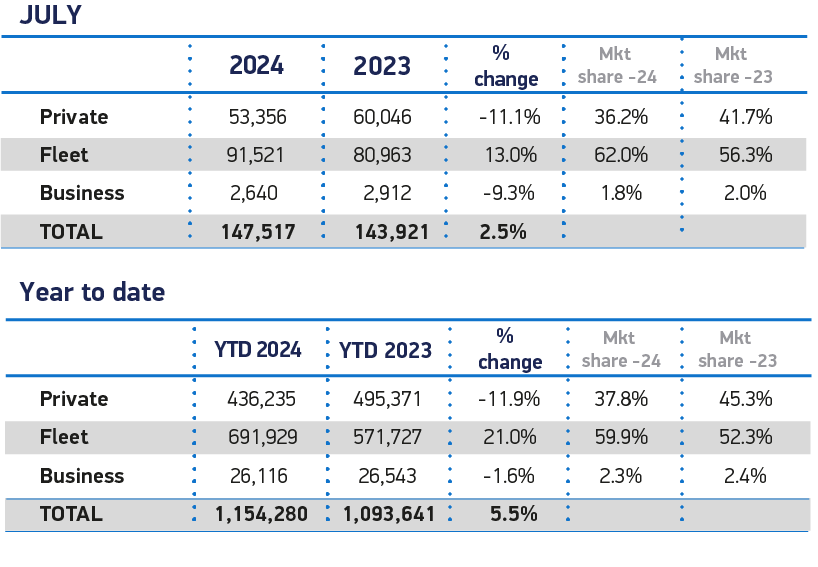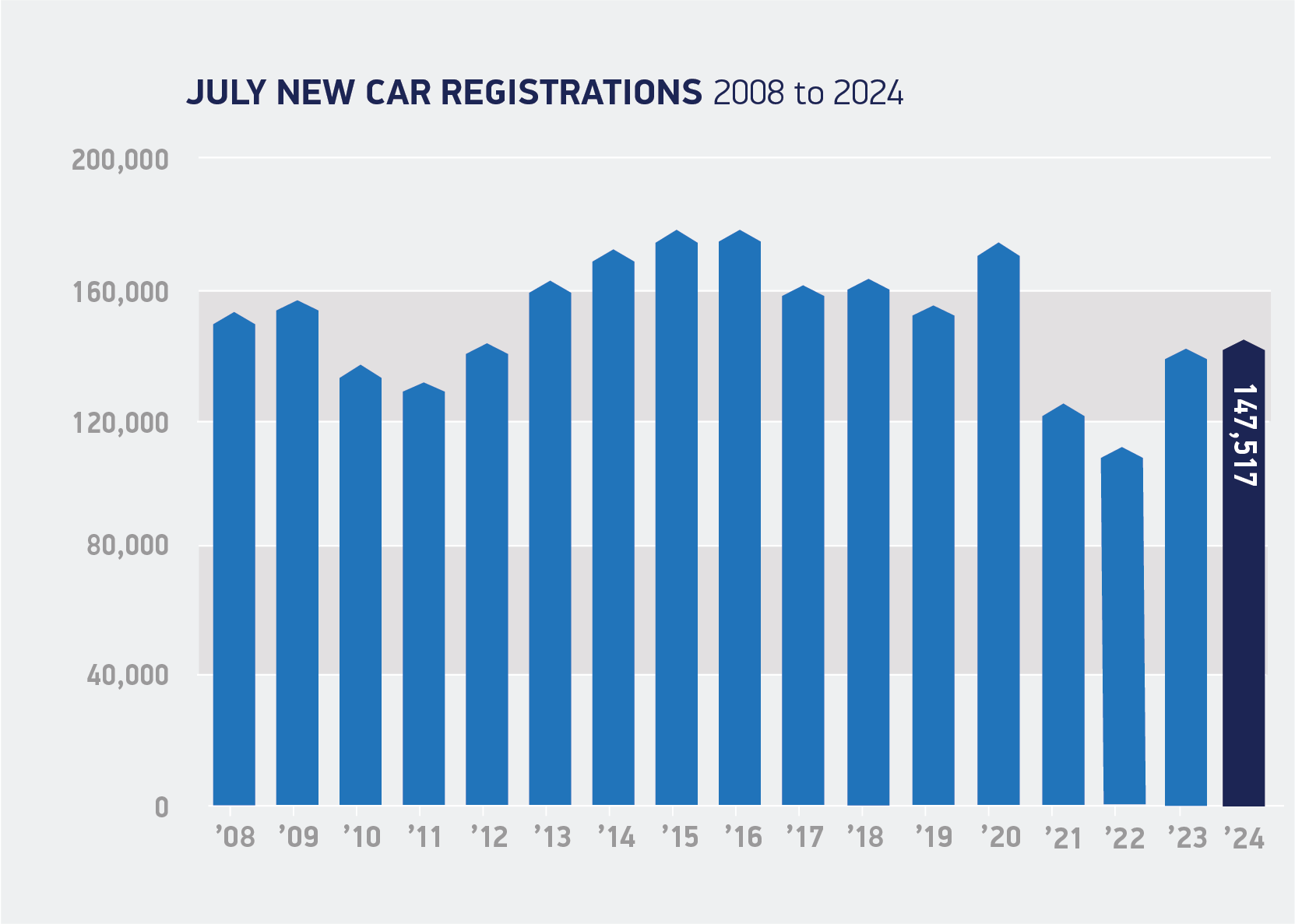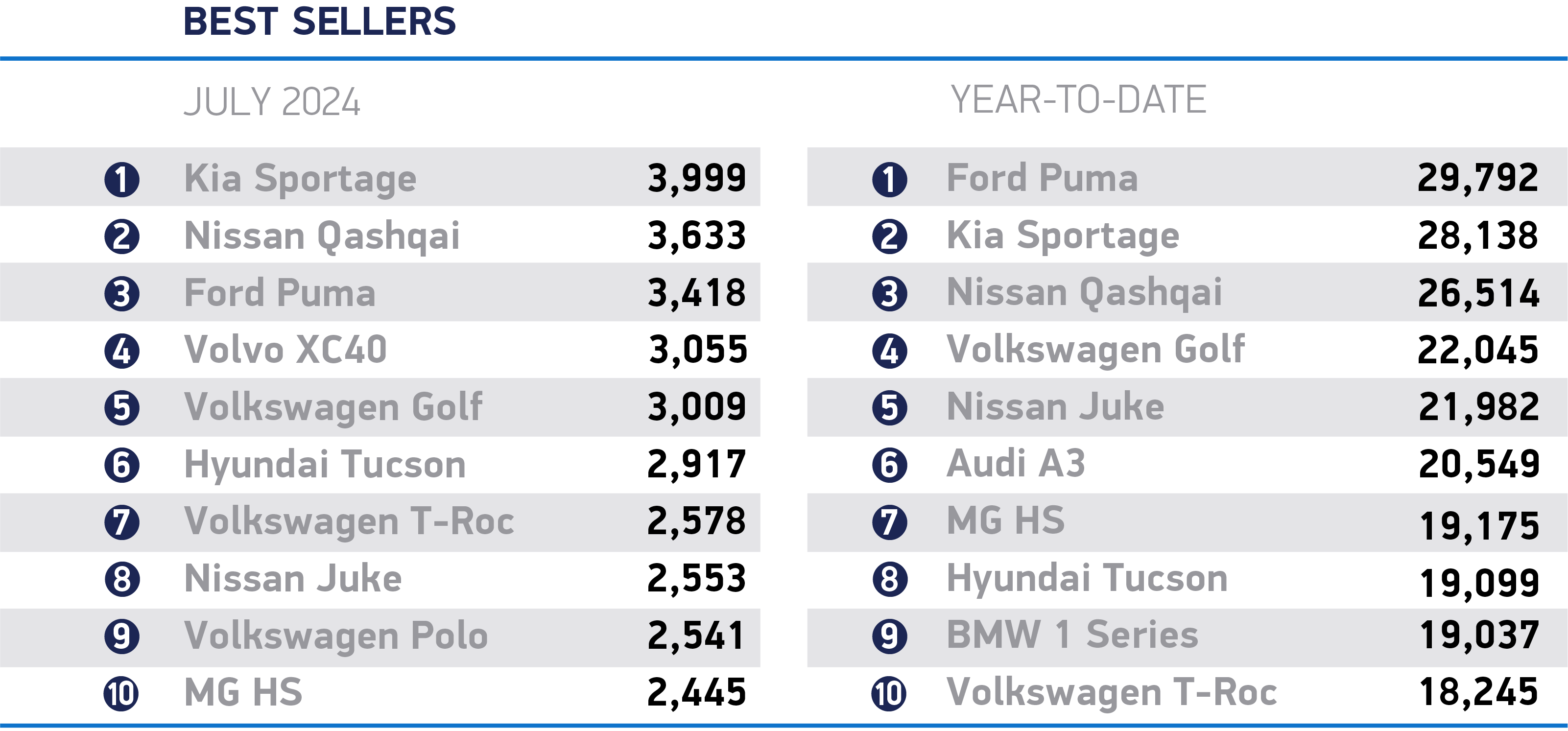The UK new car market rose by 2.5% in July, delivering two years of consecutive growth, according to the latest figures from the Society of Motor Manufacturers and Traders (SMMT). With 147,517 new cars reaching the road, it was the best performance for July since 2020, when a re-opening of dealerships following four months of lockdown saw a surge in deliveries to fulfil demand pent-up demand.1

As has been the pattern for the year, July’s growth was sustained entirely by the fleet sector, which recorded a 13.0% increase in registrations to achieve a 62.0% market share. Private demand continued to diminish, falling by -11.1% to account for 36.2% of deliveries in the month, although the growing popularity of salary sacrifice purchasing will contribute to this decline.

Electrified vehicle demand outpaced the overall market, accounting for four in 10 (42.0%) new cars registered in the month. Hybrid electric vehicle (HEV) uptake increased by 31.4% to achieve a 14.5% market share, while plug-in hybrids (PHEV) grew 12.4% to take 8.9% of registrations. Battery electric vehicle (BEV) volumes, meanwhile, were up 18.8%, resulting in an overall market share of 18.5%. While the private share of the BEV market continues to fall – 17.2% went private buyers, compared with 20.3% last year – private BEV volumes did increase by a marginal 0.9%. Overall, BEVs account for 16.8% of the new car market, year to date.
With zero emission vehicles mandated to comprise a minimum 22% of each brand’s new car registrations over the full year, the pace of transition needs to increase significantly. The latest industry outlook2, however, suggests that such a surge is looking increasingly unlikely given the current market conditions. While the outlook anticipates overall market growth in 2024, expectations have been revised downwards since April,3 with 1.968 million new car registrations now forecast by the end of the year. The anticipated BEV share of the market has also been revised downwards to 18.5% from the 19.8% expected in April. Last week’s interest rate cut was already ‘priced in’ to the latest outlook but further cuts would be welcome, helping reduce the costs of finance and making new car purchases more accessible to more consumers.






